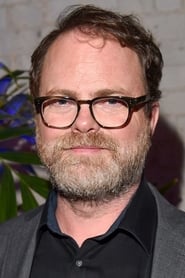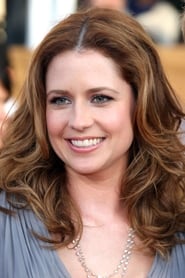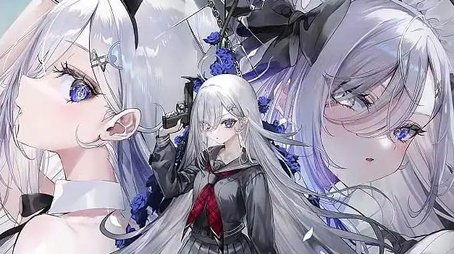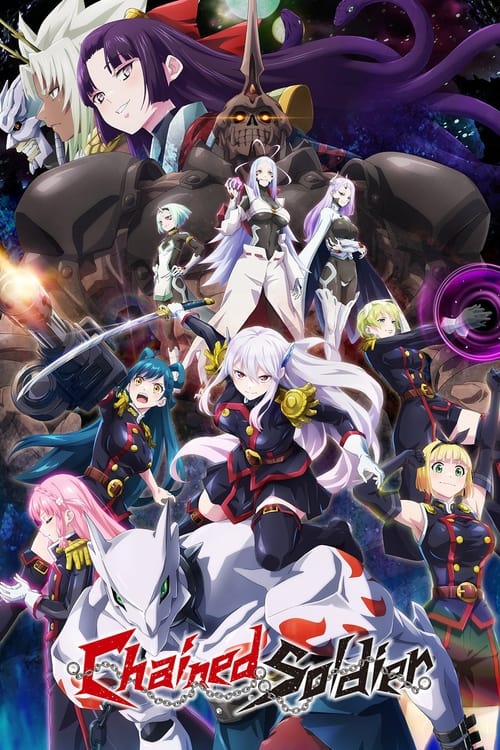
Ask Your Own Question
What is the plot?
In "Season 7 Deleted Scenes Part 2," the episode opens with a scene featuring Michael Scott, who is in his office, excitedly discussing his plans for the future. He expresses his desire to leave Dunder Mifflin and pursue a career in Hollywood. His enthusiasm is palpable, and he shares his dreams with the camera, showcasing his characteristic optimism and naivety.
The next scene shifts to the break room, where Dwight Schrute is engaged in a conversation with Jim Halpert. Dwight is adamant about the importance of beet farming and tries to convince Jim to invest in his farm. Jim, while amused, is clearly skeptical of Dwight's business acumen. The banter between them highlights their long-standing rivalry and friendship, with Jim teasing Dwight about his eccentricities.
Following this, there is a scene featuring Pam Beesly and Angela Martin discussing their respective relationships. Pam expresses her concerns about her marriage to Jim, feeling the pressures of parenthood and work-life balance. Angela, in her typical blunt manner, offers unsolicited advice, which Pam finds both frustrating and amusing. This moment reveals Pam's vulnerability and her desire for reassurance in her relationship.
The episode then cuts to a scene where Andy Bernard is practicing his a cappella singing in the conference room. He is overly enthusiastic and oblivious to the fact that his singing is distracting his coworkers. The camera captures the mixed reactions of the office staff, with some rolling their eyes and others trying to focus on their work. Andy's determination to showcase his talent, despite the lack of interest from others, underscores his need for validation.
In another scene, Kevin Malone is seen trying to impress his coworkers with a new recipe for chili. He is excited to share it but becomes increasingly anxious about their reactions. As he prepares the dish, he spills some ingredients, leading to a comedic moment where he frantically tries to salvage it. This scene highlights Kevin's endearing clumsiness and his desire to be accepted by his peers.
The episode also features a moment where Stanley Hudson is approached by Phyllis Vance, who is trying to engage him in conversation about their upcoming sales competition. Stanley, uninterested, brushes her off, showcasing his typical no-nonsense attitude. Phyllis, undeterred, continues to talk about her strategies, revealing her competitive nature and determination to win.
As the episode progresses, there is a scene where Michael and Dwight are brainstorming ideas for a new office event. Michael's enthusiasm clashes with Dwight's more practical approach, leading to a humorous debate about the merits of various themes. Their dynamic is on full display, with Michael's whimsical ideas often being countered by Dwight's serious demeanor.
The final scene of the episode features a group meeting where the staff discusses their goals for the upcoming quarter. Each character shares their aspirations, revealing their individual motivations and challenges. The camaraderie and tension among the team members are palpable, as they navigate their personal and professional lives. The episode concludes with a sense of unity, despite the various conflicts and comedic moments that have unfolded throughout.
What is the ending?
In the ending of "The Office," Season 7 Deleted Scenes Part 2, various moments showcase the characters' interactions and relationships, highlighting their quirks and dynamics. The scenes include humorous exchanges and character-driven moments that provide insight into their personalities and the office environment.
As the episode unfolds, we see characters like Michael Scott, Jim Halpert, Pam Beesly, and Dwight Schrute engaging in their typical antics, with Michael often at the center of the humor. The deleted scenes offer a glimpse into the everyday life at Dunder Mifflin, filled with laughter, awkwardness, and camaraderie. The episode concludes without a definitive resolution, leaving the audience with a sense of the ongoing relationships and the comedic essence of the series.
Now, let's delve into the expanded narrative of the ending, scene by scene:
The episode opens with Michael Scott in the conference room, enthusiastically discussing a new idea for a team-building exercise. His excitement is palpable, and he gestures animatedly, trying to engage his employees. Jim Halpert, sitting across the table, exchanges knowing glances with Pam Beesly, who is seated beside him. Their expressions convey a mix of amusement and exasperation, as they are all too familiar with Michael's over-the-top enthusiasm.
Next, we transition to Dwight Schrute, who is in the break room, meticulously organizing his beet-themed snacks. He is oblivious to the chaos around him, focused solely on his task. When Jim enters, Dwight tries to impress him with his knowledge of beet cultivation, but Jim, with his characteristic sarcasm, deflects Dwight's attempts at seriousness. This interaction highlights the ongoing rivalry and friendship between the two characters, showcasing Dwight's earnestness and Jim's laid-back demeanor.
In another scene, Pam and Angela Martin share a moment at Pam's desk. They discuss the latest office gossip, with Angela's stern demeanor contrasting sharply with Pam's more relaxed attitude. Pam's laughter and light-heartedness serve as a reminder of her role as the office's emotional center, while Angela's seriousness adds a layer of tension to their friendship. This scene emphasizes the diverse personalities within the office and how they navigate their relationships.
The episode also features a brief moment with Kevin Malone, who is attempting to impress his coworkers with a new recipe for chili. His clumsiness leads to a humorous mishap, spilling chili all over the floor. The laughter that ensues from his blunder encapsulates the spirit of the office, where mistakes are met with camaraderie rather than judgment. Kevin's character shines through as the lovable, bumbling employee who brings joy to the workplace.
As the scenes progress, we see Michael trying to rally the team for a group photo. He insists on capturing the perfect moment, directing everyone with exaggerated enthusiasm. The characters' reluctance and playful resistance to his demands create a light-hearted atmosphere, showcasing their camaraderie and the unique dynamics of their relationships. Michael's desire for connection and validation is evident, as he seeks to create lasting memories with his team.
The episode concludes with a montage of various characters engaging in their daily routines, punctuated by laughter and light-hearted banter. The camera captures the essence of Dunder Mifflin, a place where friendships are forged, and the mundane becomes extraordinary through shared experiences. Each character's quirks and motivations are on full display, leaving the audience with a sense of nostalgia for the relationships that have developed over the series.
In summary, the ending of "Season 7 Deleted Scenes Part 2" encapsulates the humor and heart of "The Office." Each character, from Michael to Dwight, Jim, Pam, and Angela, contributes to the rich tapestry of interactions that define their workplace. The episode closes without a definitive resolution, instead celebrating the ongoing journey of these characters and their relationships, leaving viewers with a warm sense of familiarity and connection to the Dunder Mifflin family.
Is there a post-credit scene?
In "The Office," season 0 titled "Specials," episode 76, "Season 7 Deleted Scenes Part 2," there is no post-credit scene. The episode consists of a collection of deleted scenes from Season 7, showcasing various moments that were cut from the original episodes. These scenes provide additional context and humor, featuring the characters in their typical office dynamics, but they do not include any specific post-credit content. The focus remains on the interactions and comedic situations that highlight the relationships and personalities of the Dunder Mifflin staff.
What deleted scenes feature Michael Scott's interactions with his employees?
In the deleted scenes, Michael Scott showcases his unique management style through various interactions with his employees, including moments of awkward humor and heartfelt advice. One notable scene involves Michael attempting to motivate the staff with an overly enthusiastic pep talk, which highlights his desire for approval and connection.
Are there any deleted scenes that explore Jim and Pam's relationship?
Yes, there are several deleted scenes that delve into Jim and Pam's relationship, showcasing their playful banter and deep emotional connection. One scene features them discussing their future plans, revealing their hopes and dreams, which adds depth to their already established bond.
What humorous moments are included in the deleted scenes involving Dwight Schrute?
The deleted scenes include several humorous moments featuring Dwight Schrute, such as his over-the-top reactions to mundane office situations and his competitive nature. One scene shows Dwight trying to assert his dominance in a trivial office game, emphasizing his quirky personality and need for validation.
Do any deleted scenes highlight the dynamics between the office staff during meetings?
Yes, there are deleted scenes that highlight the dynamics during office meetings, showcasing the contrasting personalities of the staff. One scene features a chaotic brainstorming session where characters like Angela and Kevin clash, revealing their differing work styles and adding comedic tension.
What insights do the deleted scenes provide about Andy Bernard's character?
The deleted scenes offer insights into Andy Bernard's character, particularly his insecurities and desire for acceptance. One scene shows Andy attempting to impress his coworkers with a musical performance, which backfires and highlights his vulnerability, showcasing the complexity of his character.
Is this family friendly?
"Season 7 Deleted Scenes Part 2" from "The Office" contains several moments that may be considered objectionable or upsetting for children or sensitive viewers. Here are some aspects to be aware of:
-
Mature Humor: The show often employs humor that revolves around adult themes, including relationships and workplace dynamics, which may not be suitable for younger audiences.
-
Innuendos: There are instances of sexual innuendos and jokes that could be inappropriate for children.
-
Language: Some scenes may include mild profanity or suggestive language that could be deemed unsuitable for a family-friendly environment.
-
Emotional Tension: Certain scenes may depict interpersonal conflicts or emotional distress among characters, which could be upsetting for sensitive viewers.
-
Social Situations: The portrayal of awkward social interactions and misunderstandings may resonate differently with children, potentially leading to discomfort.
Overall, while "The Office" is a comedy, its humor and themes may not align with family-friendly standards, particularly for younger viewers.














